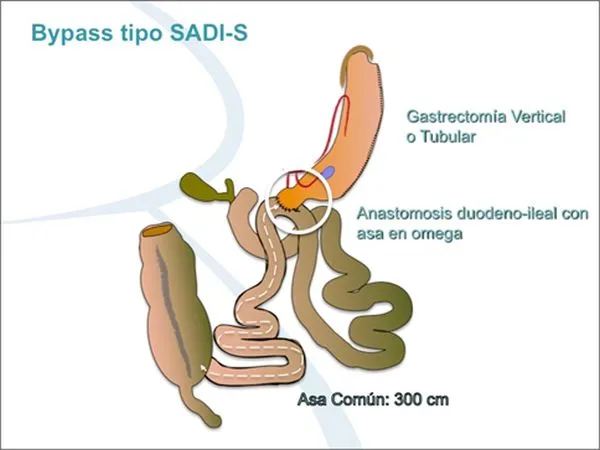The team of the Bariatric and Metabolic and responsible surgeon of the Obesitas Clinic, José Vicente Ferrer, confirms that it consolidated a success percentage located between 80 and 85 percent in the treatment of type 2 diabetes, allowing even avoiding the use of insulin, thanks to a gastric bypass operation.
The Valencian clinic explains in a statement that, in this way, "it improves the patient's quality of life, providing a greater sense of health and limiting the use of insulin."
It is a specially indicated intervention for type 2 diabetes patients, which allows the patient to suppress the use of insulin, provided that diabetes is not more than ten years old and the pancreatic reserve is sufficient .
For this last aspect, it is necessary to carry out a detailed study, and even a "real test" that allows us to know approximately what the pancreatic reserve is and how the pancreas will respond to the operation. In this context, the possibility of being able to leave insulin is from80 percent of cases, while the possibility of significantly reducing the units to be administered is 95 percent.
Sadis type bypass consists of making a small stomach and a bypass or derivation of the duodenum and ileum.This technique seeks that the food does not pass through the duodenum and the first part of the small intestine, which allows the patient to lose the weight of more.
The majority of intervened patients managed to leave the clinic at 48 hours of the operation, do not need to inject insulin after the operation, and without having lost weight, in a relevant way, which guarantees their success as an intervention against diabetes.This metabolic surgery operation is indicated for patients suffering from diabetes, of appearance in adulthood, and associated with an excess weight of more than 20 kilos, commonly known as diabesity.
The surgery service explained that surgical intervention is similar to that of obesity surgery in which a gastric baipás is performed.The Valencia Clinical Hospital implemented, in a pioneer, a program of metabolic surgery or diabetes with which it is intended to correct type 2 diabetes resistant to treatments with a surgical intervention through laparoscopy, similar to what is done to combatObesity
As reported to the EFE news agency of the health center, although this same surgical intervention is held in other Spanish hospitals, the Clinical Hospital is the first one in which a specific program for this performance was launched.
The Head of the Clinical Hospital Surgery Service, Joaquín Ortega, explained that surgical intervention is similar to that of obesity surgery in which a gastric baipás are performed, although in this case the patients are not morbid obese, but withObesity Grade 1. Although the main objective is to correct diabetes, at the same time it is possible to reduce weight, treat cholesterol, hypertension and even the obstructive sleep apnea.
The patients who are performed this intervention are patients with refractory diabetes, who have obesity grade 1, are between 18 and 50 years old, diabetes of less than five years of evolution, poor medical control of diabetes and absenceof serious complications of diabetes.


